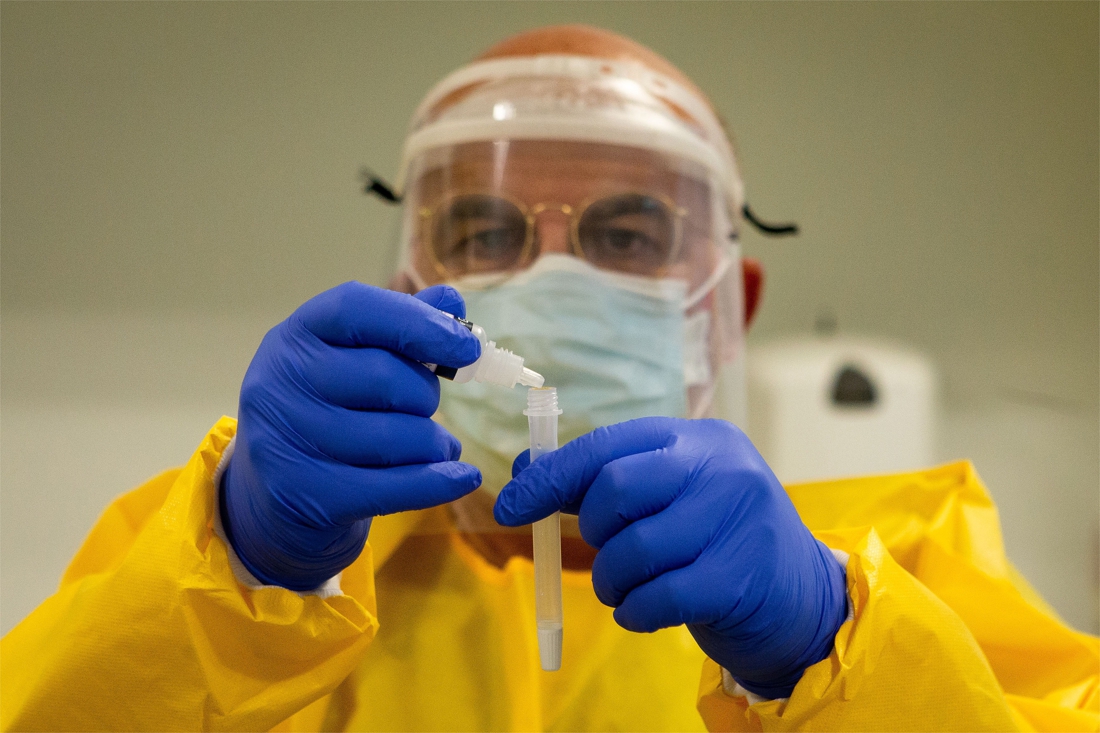A ten-year-old girl, resident in Guimarães, spent 48 hours in the intensive care unit of the Centro Materno Infantil do Norte (CMIN), in Porto, managing to recover from the symptoms aggravated by the covid-19.
The girl from Pevidém, unlike the most common symptoms caused by the coronavirus, did not have any cardiac symptoms, but intoxicated the blood and the appearance of several spots throughout the body, eventually losing strength.
Ana Marques, the child’s mother, told O MINHO that her daughter started having some fever spikes the other Sunday, going to the Hospital de Guimarães where she tested covid-19, but it turned out to be negative. However, a drop in blood platelets was detected, something that, they thought, was being caused by a normal viral infection other than SARS CoV-2.
“On Monday she started to run out of strength, she didn’t get out of bed and had many spots all over her body. I called health 24 and was told to take her to the hospital again, ”says Ana Marques.
Once again at the hospital, pediatricians realized that the blood platelets were coming down, so it was necessary to hospitalize to transfer hemoglobins.
However, because of hospitalization, the child was tested again at covid-19 and, this time, was positive. The mother’s test was negative.
“She was hospitalized around 3:00 am on Monday morning, but her clinical condition worsened and in the afternoon she was transferred to intensive care at CMIN”, explains the mother.
According to what she was told in Porto, Ana Marques’ daughter contracted Kawasaki disease associated with covid-19, which causes spots on the body and also causes blood poisoning.
Ana claims that these rare symptoms are derived from covid-19 and that her daughter was the first known case in Portugal.
“The vast majority appeared in the United States and the first death was recorded in France,” he explains.
This Wednesday, the girl remains hospitalized at the CMIN of Porto, this time in pediatrics, no longer being in intensive care. “He is under permanent surveillance but he is frankly better”, reveals Ana Marques.
“It was a very intensive 48 hours where they did everything they could to stabilize her condition until they left intensive care”, adds the mother, leaving a big thanks to the professionals at the Centro Hospitalar do Porto for “saving the girl’s life”.
He also thanks “Dr. Raquel”, from the pediatrics of Hospital Senhora da Oliveira, in Guimarães, for having acted “promptly” without ever “neglecting the attention on the girl”.
“This should serve as an alert for adults and parents, so that they are aware that our actions harm others,” says Ana Marques, recalling that children “are more fragile” and can suffer a lot from the virus.
The first alert for children infected with covid-19 who developed symptoms similar to Kawasaki disease was given in the United Kingdom in May by the UK Association of Pediatric Intensive Care.
He ended up being seconded by the Spanish Association of Pediatrics and the Italian Society of Pediatricians, after an “apparent increase” of cases in just three weeks, with children who were suffering from a “multisystemic inflammatory state that requires intensive care”.
Symptoms of Kawasaki disease include fever over five days, skin rashes and swollen glands in the neck.
–

